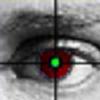I like playing with capital, Capitols too.
First, a distinction.
An instrinsic approach to knowledge leads to the view that knowledge is a grasp of an object through the passive absorption of revelations, divine or otherwise. Those who subscribe to this viewpoint describe a faculty of "just knowing" in terms of intuition, a sixth sense, ESP, reminiscence, or divine revelation. This is how religious people believe they can be privy to special knowledge, such knowledge being designated with caps ~ as in the Truth or the Absolute or the Divine (as you have done in your post to make your points).
A subjective approach to knowledge leads to the view that knowledge is the creation of an object through the active inner processes of the subject. Those who subscribe to this view reject revelation as a means of knowing, opting instead to rely on the internal content and structure of their conscious minds to create facts from their own internal resources alone, without caring to establish their relevance or significance to the external world.
An objective approach to knowledge leads to the view that knowledge is the grasp of an object through an active process based on reality and chosen by the subject. Those who subscribe to this view reject both revelation and emotion as means of cognition, relying instead on establishing a correspondence of truth between the objects of reality and the products of consciousness (e.g., propositions or claims).
In talking about the absolute nature of truth and knowledge, one can approach it from both a metaphysical and an epistemological perspective. Metaphysically, there are certain facts of reality that are necessary regardless of what anyone may think, and therefore are true in an absolute sense, e.g., the fact of gravitation. This is in contrast to man-made facts that are not necessary, that depend on human choices and actions, e.g., the fact that this forum is here depended on the values, choices and actions of BJK to start it and keep it running.
Epistemologically, the truth of a proposition can be contextually absolute based on sensory observations and conceptual and logical integrations. There may be more to learn about the object of this proposition, but the additional knowledge can be integrated without logical contradiction into an existing knowledge base. This process is not measured against some standard of omniscience, but against a reasonable, human standard of truth in accordance with the objective view of knowledge.
Now, I will address your post.
I try not to merely stretch their application to the limits of the English proper noun but to make them shed light upon nothing so substantial as an idea.
Again, I would urge you to take care not to use caps as per my reference above re: the intrinsic view of knowledge.
Truth is not relative.
Is that a Truth?
Sidestepping the instrinsic view, it's better to simply say: "The truth is not relative," and then ask: is that true? (I've answered this question already).
Truth is absolute.
Is that a lie?
A false idea?
A fabrication made True?
When people rely on revelation as their means of knowledge, these questions naturally arise, do they not? Let us once again substitute "Truth" (through relevation) with "the truth" (through metaphysics, epistemology and logic), so that we get the proposition "The truth is absolute." Is that a lie? No. A false idea? No. A fabrication made *true*? No. I touched on this already (see above).
Absolute Truth is false yet truth is absolute.
Why?
Again, Abolute Truth is a fabrication of the instrinsic view of knowledge.
So perhaps some get to smile at irony
Play with their minds
Illuminating ideas in time
Relative uniformity is cosmic
Mundane made sublime
Math become poetry
To rhyme just slipping in time.
When we find that Relativity is true
Where Quantum Mechanics is too
Roses are red do you want to know
Why is the sky so blue?
I do
If I knew, would I tell you?
If I have the Truth and share it,
Is it still mine too?
The intrinsic view of knowledge leads to dogma. The subjective view of knowledge leads to fabrication. The objective view of knowledge leads to products that accord with the nature of reality and reason.
Truth's Relative In Finite Perspective
But Absolute Objectivity Divine
Absolutely subjective to define
No. Truth from an intrinsic perspective is never relative. Objectivity requires a specifically *human* relationship between existence and consciousness ~ and it's not subjective.















































